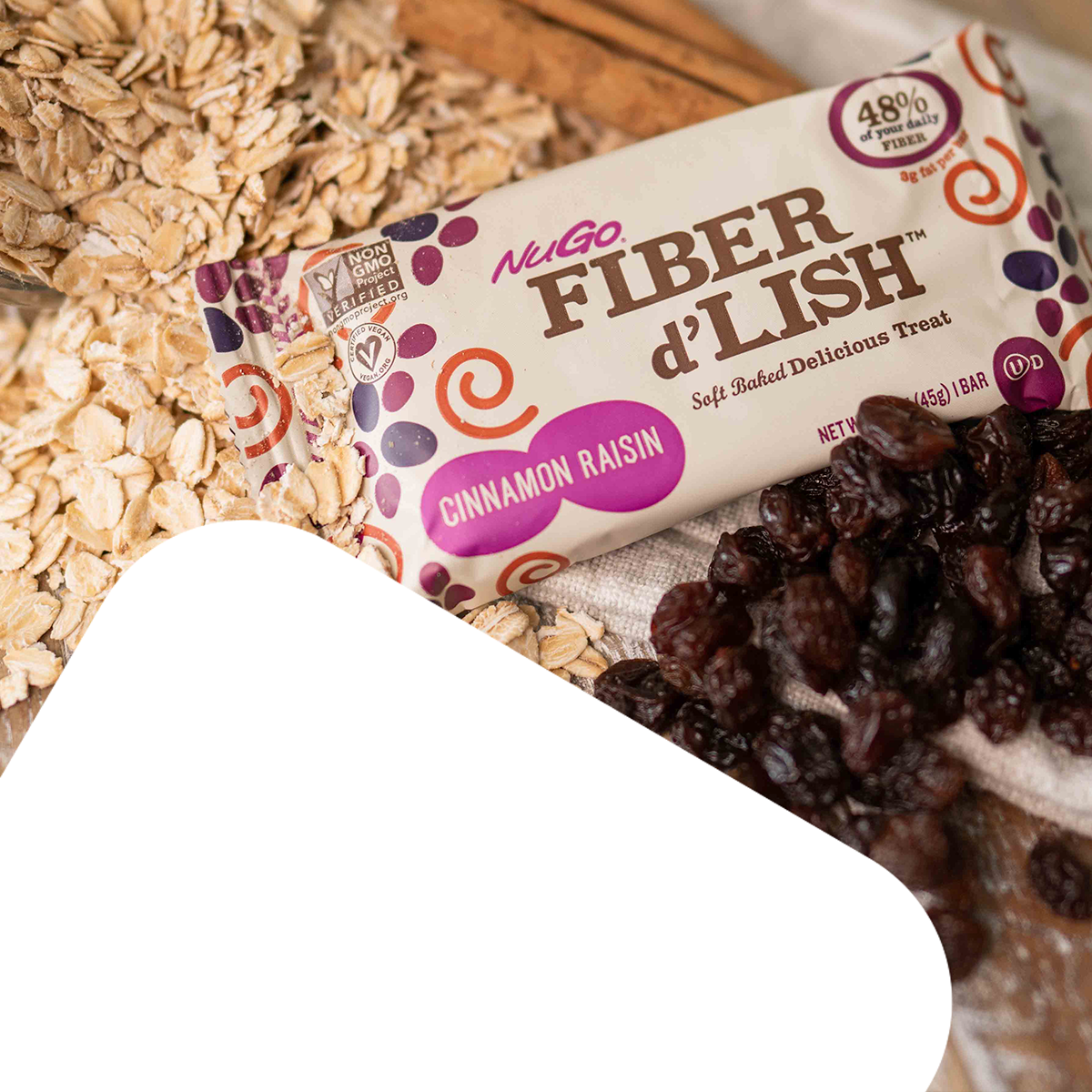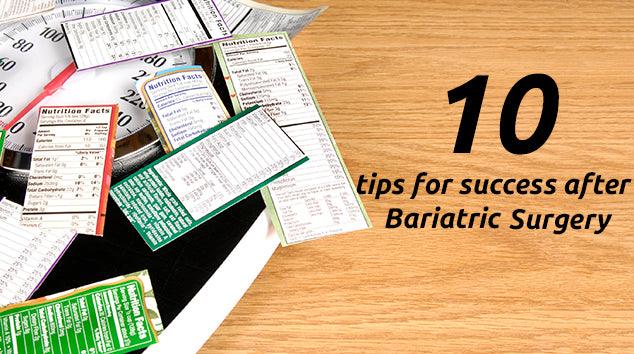Use these tips for success after bariatric surgery, a treatment for morbid obesity. There are several different procedure options including the Laparoscopic Adjustable Gastric Band, Roux-enY Gastric Bypass, Vertical Sleeve Gastrectomy, and Biliopancreatic Diversion with Duodenal Switch. These procedures are designed to reduce the size of the stomach and restrict the amount of food one can eat at any given time. Several recommendations and guidelines are given in order to ensure continued success after bariatric surgery, because long-term success is not always a guarantee, especially if proper lifestyle habits are not put in place. Below you can find my top 10 tips for long-term success!
- Engage in some form of meal planning. This doesn’t necessarily mean you need to plan every single meal for every single day of the week on Sunday nights. While that would be an excellent habit, it may not be realistic for you. Meal planning can be as simple as packing your breakfast and/or lunch meal the night before; or keeping a healthy snack such as NuGo Slim protein bars or packs of nuts in your desk drawer at work, in your purse, or in your car. Having a healthy option already packed and ready to go helps to prevent reliance on fast food or convenience foods. Meal planning can even include a quick recipe that takes less than 15 minutes to prepare. Having meals and snacks already planned allows you to make fewer decisions about food during the course of your day which makes it easier to meet your goals.
- Practice mindful eating. Put your fork down in between bites and chew your food thoroughly, paying attention to how the food tastes and feels in your mouth. Be aware of your hunger and fullness cues. Remember that a 20-minute delay occurs between the stomach and brain, so you may notice you are physically full before your brain catches up. Mark a halfway point in your meal to sit back and relax and evaluate your hunger/fullness level.
- Practice portion control. Measure the amount of food you plan to eat so that you know exactly how much you are consuming. Studies show that individuals who measure their food tend to eat less than those who do not. This practice will also allow you to “eyeball” serving sizes to fit your needs when eating out. Weigh lean meats using a food scale as these are more difficult to judge just by looking at them.
- Practice label reading. This might sound silly, but if you don’t read the nutrition facts label, do you really know what you’re eating? Food companies often hide excess sugar, fat, and salt in foods where we may not be aware.
- Keep your body hydrated! Adequate hydration is so important for maintaining a variety of body functions including blood pressure, body temperature, bowel movements, healthy skin, and kidney function, among many others! Sometimes your body can be pretty tricky – it may tell you that you’re hungry, when you may actually be slightly dehydrated. Drinking plenty of water during the day may help to curb hunger, or what you may have considered hunger. Aim for a minimum of 64 oz. of calorie-free, sugar-free liquids, most of which should come from plain water. Some sources suggest you should take half of your body weight in ounces and drink that amount of water daily. Therefore, a 200 pound individual would aim to drink 100 oz. of fluids daily. Don’t rely on your thirst to tell you it is time to drink because you may already be slightly dehydrated at this point.
- Consume enough protein. Maintaining an adequate protein intake after surgery allows your body to heal, prevents loss of muscle mass, and maintains energy levels. After bariatric surgery, it is often difficult to meet your protein goals from food alone and this is where protein supplements, such as NuGo Slim, may be necessary. Some of the early signs of a protein deficiency include having very little energy and feeling tired or lethargic. Protein also requires more digestion in the stomach compared to carbohydrates or fat, therefore it helps to fill you up faster and keep you full longer.
- Get some exercise. Exercise is an excellent way to assist weight loss and maintain your weight long term. However, there are so many benefits of physical activity beyond weight loss and weight maintenance. Exercise has been shown to reduce your risk for chronic diseases including cancer, heart disease, and diabetes; reduce your blood pressure, improve diabetes, maintain healthy bones, help to improve cognition and mood; and improve flexibility and functional health. The best exercise is the one that you enjoy!
- Nurture yourself. – Find ways to be kind to your body that don’t involve food. Food is highly emotional, and it is common to turn to food for comfort. However, this may derail your weight loss and maintenance efforts if you grab a cookie every time you are upset or stressed out. Find other positive ways to deal with stress and emotions. Find activities that you enjoy, make you happy, make you feel good, and that simply keep your mind off of food. If you sit around thinking about food all day, you are going to drive yourself crazy!
- Maintain personal accountability. Be able to recognize if you begin to slip back into old eating behaviors. Don’t ignore those habits. Many of them may be subconscious and you may not realize they are sabotaging your weight loss and maintenance efforts. Do you notice that you eat when you’re bored? Stressed out? Depressed? Anxious? Own your behaviors and decisions and make a plan to deal with it better the next time you notice those old habits creeping back.
- Take recommended vitamins and supplements. Vitamins and minerals are absolutely essential after bariatric surgery to prevent micronutrient deficiencies. Since most people consume far less food and the ability to absorb enough nutrients is greatly decreased after bariatric surgery, taking a high quality supplement that meets the ASMBS guidelines is required. You should refer to your surgery center for specific recommendations.










Leave a comment
This site is protected by hCaptcha and the hCaptcha Privacy Policy and Terms of Service apply.